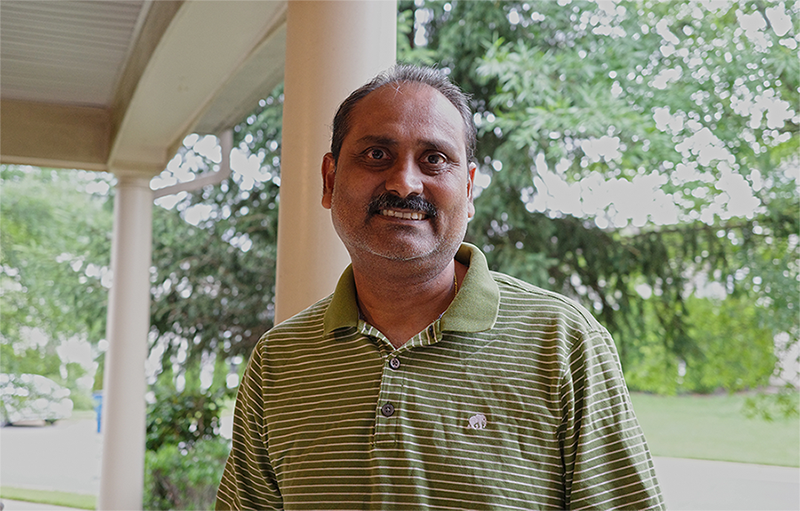My early years were spent in a small village in Andhra Pradesh. Growing up in an agricultural family meant spending time on the family rice mill, which was the hub for the community gatherings and a place where every evening was spent cherishing each other’s company. My village was dynamic, full of people and full of life. The diverse atmosphere and rich stories that surrounded me came from Christianity, Islam, and Hinduism and there were no boundaries when it came to festivals and gatherings. Everyone shared each other’s joys and sufferings.
Education was always prioritized in my family. My uncle was a renowned English teacher and I was privileged with a well-rounded education in my early years and beyond. I went to convent school growing up and received a high quality of education. As I sought out higher education, I travelled to many colleges, however, some of the colleges had particular restrictions that I did not meet. Professor Ramanaiah Kolluru at Jamal Mohamed College, a primarily Muslim institute in Tamil Nadu, welcomed me with open arms. Even though I was not of Muslim faith, this professor allowed me to stay at his house for three years while I pursued my studies. I can never forget this act of kindness.
My time at Jamal Mohamed College was surrounded by men who were equally energetic and passionate as I was, sometimes even more so. For every cricket match, we would come together and root for India and celebrate when they won and be proud of the country we grew up in. I never felt like an outsider in the university, I was simply a student like everyone else.
I went on to pursue a career in academia. I started the Master of Computer Applications (MCA) department at Loyola College in Chennai, Tamil Nadu, as a professor. Taking on the stylistic teaching methods of the teachers who taught me, I taught everything from statistics to engineering and business systems. One thing that I always tried to include in my teachings was a skill learned from a previous professor of mine that taught in such great detail you could visualize the graphs and data sets before your eyes.
During my time as a teacher in India, I helped to craft the pedagogical paradigm that was implemented in future lesson planning at Loyola that brought together the intersection of moral education with strong foundations in compassion and empathy while teaching. With other professors, we helped change the narrative in university by giving equal importance to sports and extracurriculars as a way of captivating students. I moved to the U.S. in March 1998 and started teaching at Northern Virginia Community College right up until the pandemic.
Out of all the lessons I have taught, one that I hope can reach the world is to be empathetic and compassionate to one another. People have diluted the meaning of compassion into fragments of its true meaning without fully embodying the characteristics behind the word. Compassion is kindness, forgiveness, understanding, and the conjunction of thousands of other definitions.
Like the small village I grew up in the plains of Andhra Pradesh, if we can realize our potential as a global village without any differences whether religious or other, we can open our arms to receiving love and understanding to each of our ties in this global community. I am grateful to have been given the resources and tools to succeed early in my life. If millions everywhere are given the same opportunity, who knows where the limits lie to the capabilities of our human race.

